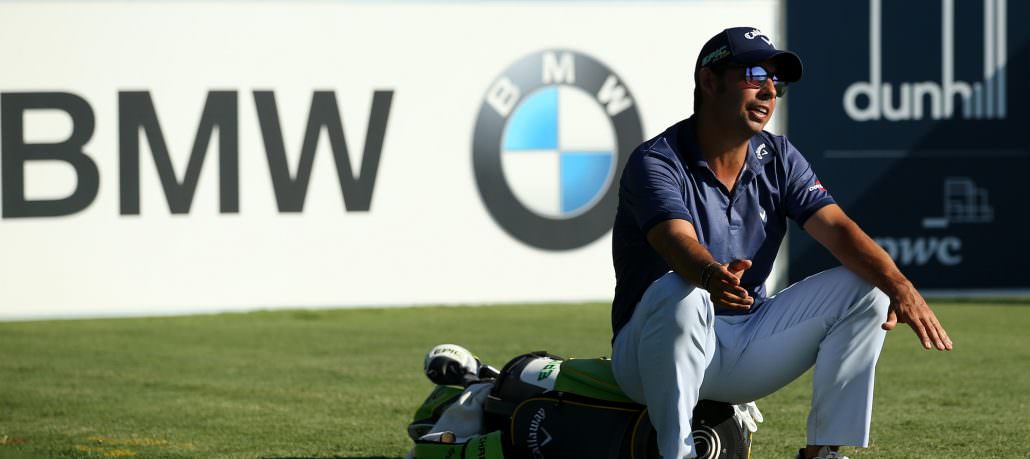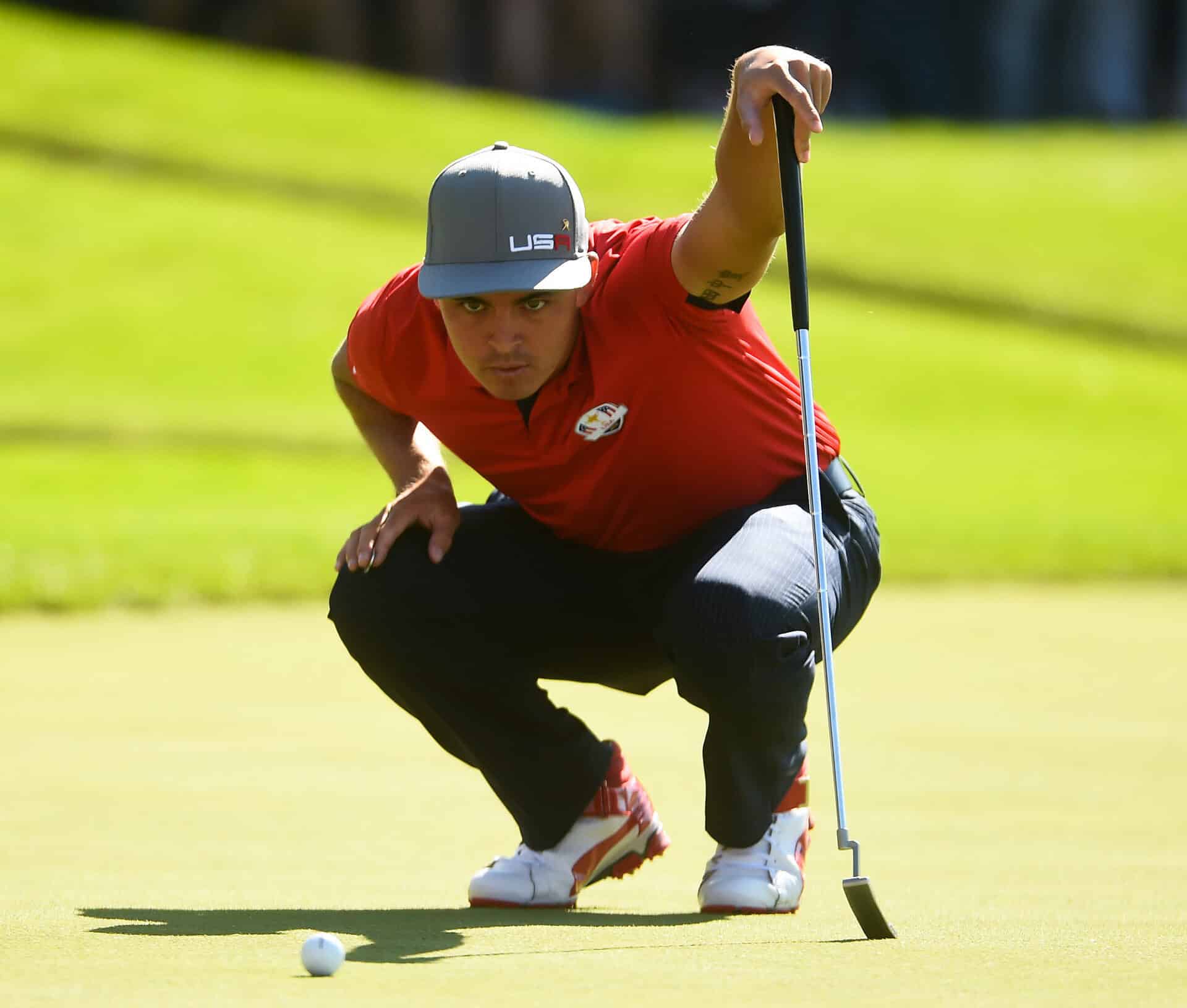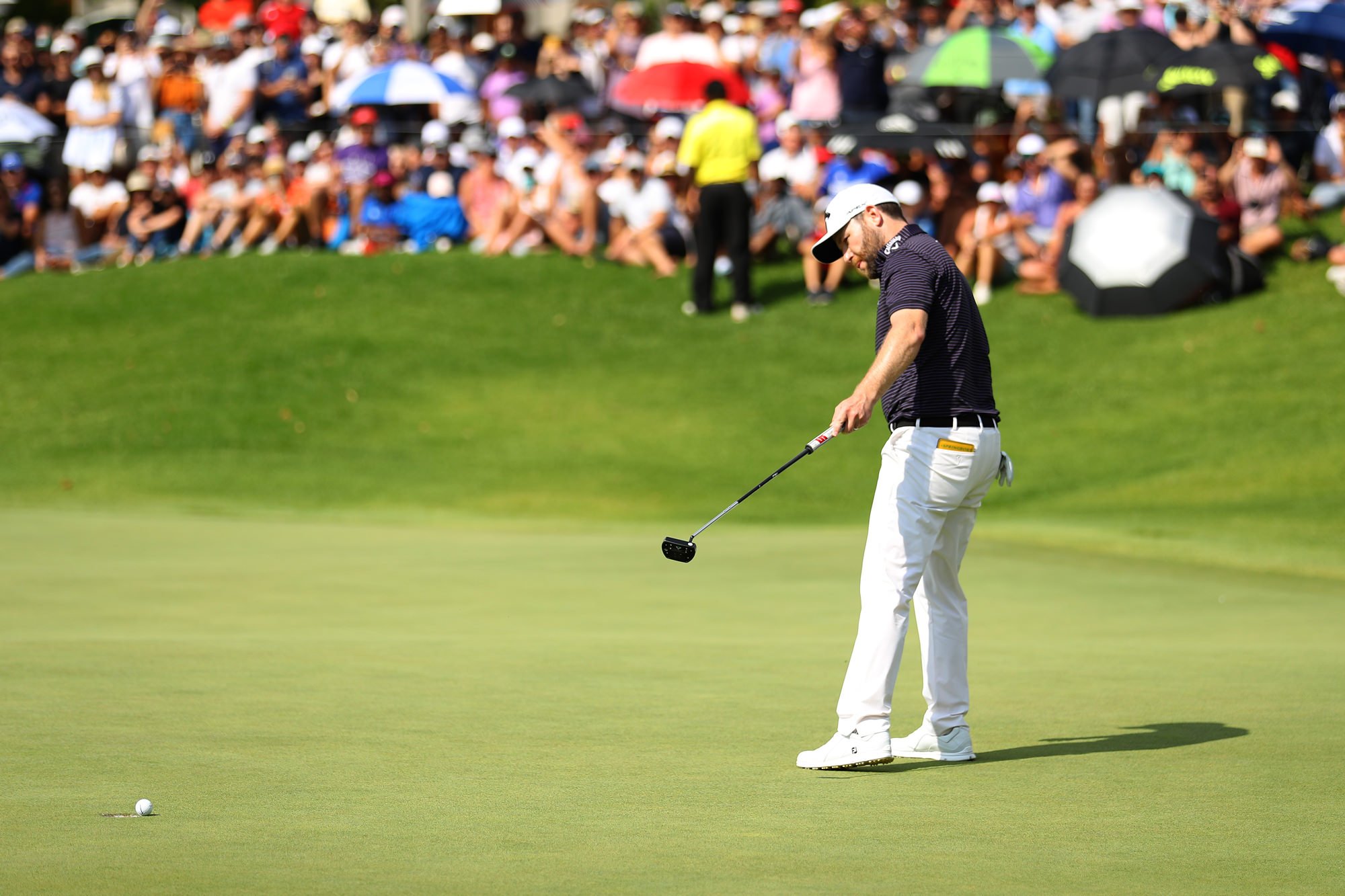
Check, challenge, continue – thinking at its best
All too often I’m asked by golfers to help them ignore negativity and think more positively. While this can be useful, I think those who simply try to block out, or swap negative thoughts for positive, are missing a trick.
Rather than attempting to ignore (which rarely works), top athletes challenge their thoughts. Follow their example by monitoring yours before and during a round and then ask yourself a series of questions. This will help you check your thought process and challenge the way you’re thinking, providing you with a more positive outlook.

Below, I’ve outlined questions I encourage my own clients to ask of themselves. Whether the round is going well or not, next time you’re on the course, give this a go and see how you get on.
How to think better for golf: Are my thoughts helpful?
Away from the swing itself, one of the most important skills for any golfer is to be able to question their thought process. There are two main reasons for this. Firstly, it allows you to become more aware of what you’re thinking. And secondly, it helps you catch unhelpful thoughts.
On or off the course, negativity is bad for your game. And the best way to get rid of a negative thought is not to ignore it, but to say ‘stop’ and halt this train of thought.
One of my favourite questions I ask golfers to ask themselves is: ‘Is this fact or feeling?’ Often, we feel like we are going to play poorly or that we are playing poorly, yet, when we look more objectively, it’s just not the case. Asking yourself this question in the moment allows you to realise straight away, not upon reflection when it’s too late.
How to think better for golf: Am I ready to take risks?
Risks, by their very nature, are like a double-edged sword. On one hand, take too many and you might come unstuck, but on the other, they can often make a round and get you on a nice run.
This question gets you thinking about what risks to take as opposed to being too ‘safe’ and not taking any at all. More importantly though, it allows you to consider what level of risk you are willing to take, so you’re always aware of when risks are acceptable.
How to think better for golf: What would x say in this situation?
I’m sure most reading this will, upon reflection, acknowledge that when they are under pressure, annoyed, frustrated or nervous, they have a tendency to start thinking very rigidly – which can be really harmful to how you play.
This question allows you to explore alternative ways of thinking; ways you could have forgotten or never before considered. For example, think of what your coach, golfing hero or even a trusted playing partner would say when you’re in the pressure cauldron and your judgment is clouded. Some of my clients even ask: ‘What would Matt say?’
How to think better for golf: What does my best performance look like?
Thinking about what playing at your best looks like is a great way to prepare for a round. There are two main reasons my clients think this works:
-It allows them to understand what they do when playing well. Try writing down three things and keep them in mind for when you get nervous, angry or stressed. This will allow you to get your focus back on what you need to do to perform.
-It helps them visualise their best which, in turn, makes them feel more likely to produce on the course. Seeing yourself do well always makes you feel more confident beforehand.
How to think better for golf: What can I do now to help me feel better?
In any sport, but particularly in golf, being proactive is always better than being reactive. Asking this question makes you consider what to do in the moment to improve your thinking, before you get to the point where how you feel affects how you play.
Most golfers have likely read, or listened to, the countless ways in which they can feel better on the course. But I tend to find they apply these too late and are reacting as a result.
On the flip side, being proactive could save you shots and, at the very least, will help you keep your emotions in check.
Read more:
- See your best to play your best: The art of visualising your shots
- How important is a pre-shot routine? We asked one of the world’s best coaches
- What you can learn from Rose’s mental strategies
About Matt Shaw
Matt Shaw is a performance psychologist at InnerDrive who has worked with highly-skilled amateurs and tour professionals. InnerDrive’s team of sport and performance psychologists have been helping elite athletes perform at the top of their game, and even win medals for Team GB at the London 2012 and Rio 2016 Olympics. On top of their one-on-one coaching and workshops for golfers, coaches and parents, they regularly produce resources to help every player improve their mental game. Visit their website or follow them on Twitter to learn more.
Andrew Wright
NCG's instruction editor. Terrible student so trying my hand at passing on some of the best advice I've never listened to. Member of Royal Troon. Favourite golfer is two-time major winner and hall of famer, Retief Goosen.









